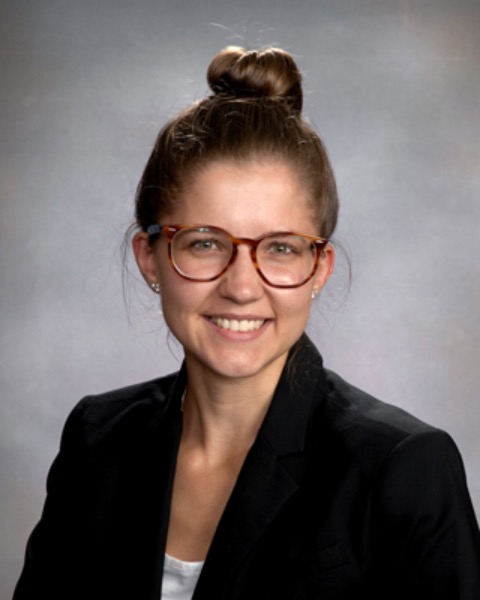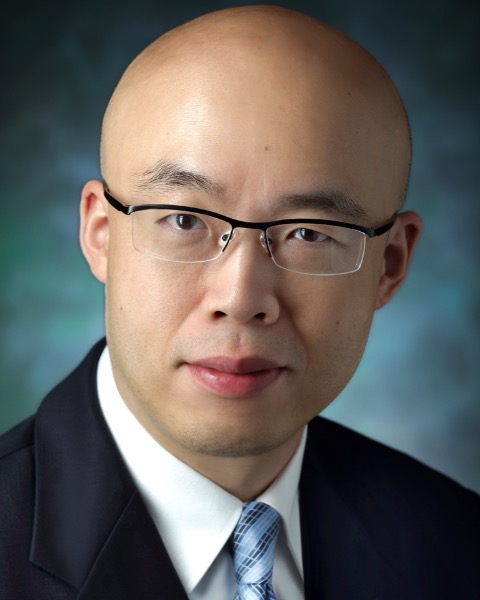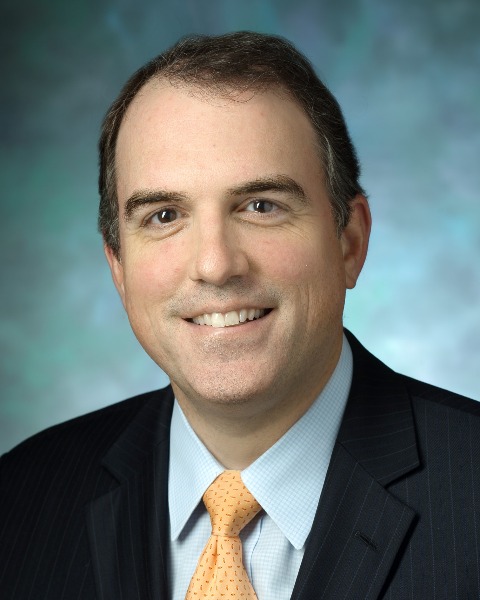Hepato-pancreato-biliary
E205: Preclinical evaluation of NOTCH inhibition to enhance PD-1 immunotherapy in pancreatic cancer

Julia Purchla, MD (she/her/hers)
Post-doctoral Research Fellow & Resident Physician
Division of Hepatobiliary and Pancreas Surgery, Department of Surgery, Johns Hopkins University School of Medicine; General Surgery Residency, Zucker School of Medicine at Hofstra University/Northwell at NSLIJ, United States
Julia Purchla, MD (she/her/hers)
Post-doctoral Research Fellow & Resident Physician
Division of Hepatobiliary and Pancreas Surgery, Department of Surgery, Johns Hopkins University School of Medicine; General Surgery Residency, Zucker School of Medicine at Hofstra University/Northwell at NSLIJ, United States- YP
Yasheel Pandya, B.S
Research Associate
Department of Surgery, Division of Hepatobiliary and Pancreas Surgery, Johns Hopkins University School of Medicine, United States - SC
Sophia Y. Chen, M.D, MPH
Post-doctoral Research Fellow & Resident Physician
Department of Surgery, Division of Hepatobiliary and Pancreas Surgery, Johns Hopkins University School of Medicine, United States - JF
Juan Fu, M.D, PhD
Post-doctoral Research Fellow
Department of Oncology, Sidney Kimmel Comprehensive Cancer Center, Johns Hopkins University School of Medicine, United States - BE
Birginia Espinoza, B.S
Research Technologist
Department of Oncology, Sidney Kimmel Comprehensive Cancer Center, Johns Hopkins University School of Medicine, United States - AG
Andrei Gurau, MD, MHS, MS
Research Fellow & Resident Physician
Division of Gastrointestinal Surgical Oncology, Department of Surgery, Johns Hopkins University School of Medicine; Valley Health General Surgery Residency, The Valley Health Hospital System, United States - KC
Kai Chen, PhD
Post-doctoral Research Fellow
Department of Oncology, Sidney Kimmel Comprehensive Cancer Center, Johns Hopkins University School of Medicine, United States - JC
John L. Cameron, M.D.
Professor of Surgery
Division of Hepatobiliary and Pancreas Surgery, Department of Surgery, Johns Hopkins University School of Medicine, United States 
Jin He, MD, PhD
Associate Professor
Division of Hepatobiliary and Pancreas Surgery, Department of Surgery, Johns Hopkins Hospital
Baltimore, Maryland, United States
Kelly J. Lafaro, MD, MPH (she/her/hers)
Assistant Professor
Division of Hepatobiliary and Pancreas Surgery, Department of Surgery, Johns Hopkins Hospital
Baltimore, Maryland, United States- CS
Christopher R. Shubert, MD, MHA
Assistant Professor
Division of Hepatobiliary and Pancreas Surgery, Department of Surgery, Johns Hopkins Hospital, United States - RB
Richard A. Burkhart, MD
Associate Professor
Division of Hepatobiliary and Pancreas Surgery, Department of Surgery, Johns Hopkins Hospital, United States - LZ
Lei Zheng, M.D, PhD
Professor of Oncology
Department of Oncology, Sidney Kimmel Comprehensive Cancer Center, Johns Hopkins University School of Medicine, United States 
William R. Burns, MD
Assistant Professor
Johns Hopkins Department of Surgery
Baltimore, Maryland, United States
ePoster Abstract Author(s)
Submitter(s)
Author(s)
Treatments for patients with pancreatic ductal adenocarcinoma (PDAC) remain limited, highlighting the need for novel therapies. Inhibition of the NOTCH pathway, which can modulate immune responses, has been ineffective as monotherapy. However, preclinical studies have identified potential benefit from inhibition of NOTCH signaling and blockade of the immune checkpoint programmed death receptor-1 (PD-1). The aim was to assess the safety and efficacy of a clinical-grade NOTCH inhibitor (NOTCHi) in combination with anti-PD-1 in a preclinical PDAC model.
Methods:
An orthotopic mouse model, which implanted murine KPC tumor fragments into pancreata of C57BL/6 mice, was used to evaluate treatment with placebo, NOTCHi, anti-PD-1, or combination therapy. Anti-tumor efficacy was assessed by tumor size by ultrasound, rates of metastasis, and overall survival. In addition, safety and toxicity were evaluated during long-term treatment. Post-treatment analysis included immunohistochemistry (IHC) and single-cell RNA sequencing (scRNA-seq) within necropsy specimens.
Results:
Over 10 weeks of treatment, animals maintained body weight (mean=21.3g, P=0.51) during extended treatment. There was an association between hair graying in the coats of mice receiving prolonged NOTCHi (+/- anti-PD-1) compared to those receiving placebo (+/- anti-PD-1) (83.3% vs. 0%; P< 0.001); no treatment-related mortalities were noted. Rapid anti-tumor response was observed in the NOTCHi/anti-PD-1 group (Figure), as tumor sizes in this group were significantly smaller than those in the control and monotherapy groups (day 4: P=0.03; day 8: P=0.004). Furthermore, tumor volume at necropsy was lowest and the rate of abdominal metastasis was least in the NOTCHi/anti-PD-1 group, although not statistically significant (P=0.40 and P=0.75, respectively). Lastly, there were increased median number and density of CD8+ T cells in the NOTCHi/anti-PD-1 group on IHC analysis and preliminary scRNA-seq clustering revealed greater cytotoxic T lymphocytes, especially those with high lymphocyte-activation gene-3 (LAG3/CD223) expression, in the NOTCHi/anti-PD-1 group.
Conclusions:
Combinatorial therapy with NOTCH inhibition and PD-1 blockade resulted in rapid anti-tumor responses and lower rates of metastasis in a preclinical PDAC model. Treatment seems to be safe and well-tolerated over prolonged administration. As such, we are exploring a clinical trial with this novel treatment in patients with localized pancreatic cancer prior to curative-intent surgery.
Learning Objectives:
- Understand the need for novel therapies in the setting of resistance to current medical therapies and continued poor prognosis of patients with pancreatic adenocarcinoma.
- Deduce the relationship between a novel immunotherapy combination treatment and its effect in a preclinical murine model through an assessment of tumor response, side effects and survival.
- Describe the limitations of this data and what future investigations are necessary to justify new medical therapies.
